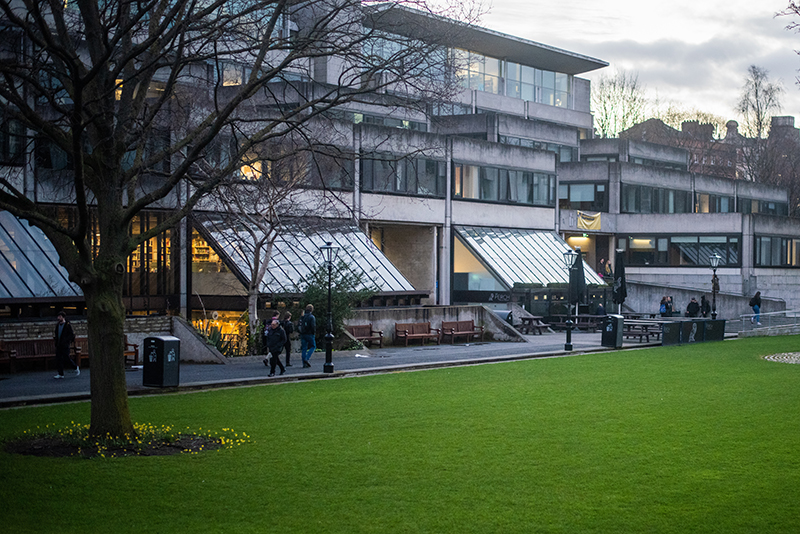There was much consensus between this year’s provostial candidates last night, as the campaign’s first hustings-style event provided an opportunity for each candidate to set out their policies and manifestos. Although it was a strong opening performance, candidates will need to consider how they can distinguish themselves from one other in the coming weeks.
In what was an historic evening marking the start of the first all-female provostial election campaign in College’s history, candidates Prof Linda Hogan, Prof Linda Doyle and Prof Jane Ohlmeyer faced the equally unprecedented challenge of an all-online hustings. The format worked well, with each candidate receiving equal speaking time, but one would have to wonder if the screening of questions by moderator Prof Brendan Tangney discouraged some tougher questions from the audience.
One memorable moment from the evening was when Ohlmeyer delivered a scathing one-liner denouncing the commercialisation of Trinity, saying that “we are a university, not a tourist attraction”. This comes after a year in which the unsustainability of Trinity’s reliance on commercial income came to the fore – College has suffered losses of €40 million euro in the wake of the temporary closure of the Book of Kells exhibition and the cancellation of the annual Summer Series concerts.
Hogan, in contrast, struck a more measured tone, and promised to continue outreach through partnerships with international universities.
As one of the most-maligned hallmarks of Provost Patrick Prendergast’s leadership, it will be interesting to see how all three candidates approach commercialisation as the race progresses.
Ohlmeyer delivered a scathing one-liner denouncing the commercialisation of Trinity under current Provost Patrick Prendergast, saying that “we are a university, not a tourist attraction”.
In the wake of what has been a challenging year for the College’s finances, the three candidates were quick to look to the newly created Department of Higher Education as a cause for hope. Indeed, the Department was lauded in July for dropping a €168 million stimulus package to bolster third-level education during the pandemic. However, as it is unclear just how beneficial this Department will be after the coronavirus crisis recedes, the confidence displayed by all three candidates in its potential reveals a certain unwillingness amongst them to criticise the current government.
It was Hogan who offered the most honest account of how the government has treated universities in recent times: “We are in an underfunded system and two decades of underfunded growth.”
With both Ohlmeyer and Doyle choosing to shy away from any such criticism, the candidates would do well to ask tough questions about the government’s current treatment of a sector that is likely to suffer the aftershock of this economic crisis for a long time to come.
It was Hogan who offered the most honest account of how the government has treated universities in recent times: “We are in an underfunded system and two decades of underfunded growth.”
Overall, the three candidates gave a strong, if harmonious, performance at last night’s campaign opener. However, after an exhausting of social isolation and online learning, it was clear that both candidates and the audience hoped for a more compact format. This is obviously not conducive to the free-flow of ideas and questions associated with the hustings format. All three need to reconsider how they can use the new format to their advantage, as Zoom evidently will not be going anywhere. As the next few weeks will see them appealing to the College’s academic staff through faculty-based events, last night’s opener offered a chance to set the tone for the campaign more broadly.
With a long two months to come, it is important now for all three to focus on establishing firm and memorable differences between their policies.
Eimear Finan is the Opinion Editor for The University Times, and will also act as the lead columnist for the newspaper’s coverage of the Provost elections.







